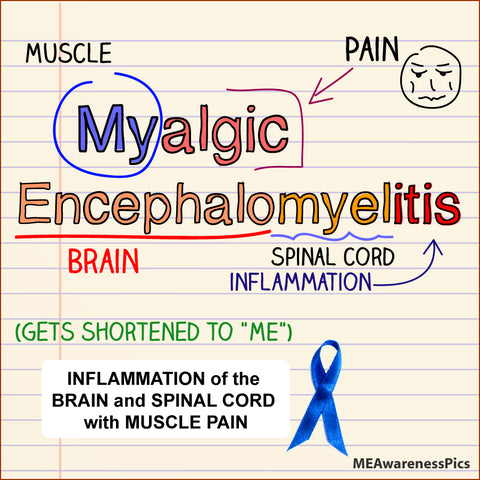
ME is complicated. It’s a long-term illness with an array of symptoms which could be associated with many other diseases. The most common symptoms include: chronic fatigue, brain fog, poor cognition, debilitating pain, recurrent infections and gut issues.
The disease is more common in women than men. Typically, it develops around the age of 20-40. Children aged 13-15 years can also be affected with this disease.

At present, there is no medical treatment for ME through the NHS. Privately, a doctor will treat the individual symptoms, helping the patient to improve their condition. Complete recovery, per se, is not yet guaranteed.
Myalgic Encephalomyelitis treatment can involve a lot of trial and error because it’s so very difficult to pinpoint which issues are causing which symptoms.
Patients suffering from ME for a long time tend to develop other health issues. These include: poor functioning adrenals and/ or thyroid, Irritable Bowel Syndrome (IBS), leaky gut, bacterial overgrowth, poor mitochondrial function and candida.

Emma, a long-time sufferer of ME, has shared with us her story, which is a story of determination, courage and confidence. She has fought to gain some control over ME and is now managing her condition and pain levels far better than she used to. She is living a healthy, happy life. Here’s what she told The Teaologists Team.
“I've suffered with ME for over seven years and during that time my diet became incredibly poor - I relied on sugary foods and drinks to keep me awake at work, I ate over processed ready meals as I was too fatigued to cook; I was constantly taking antibiotics as I would catch cold after cold which would always end up as a chest/ throat or sinus infection! It's likely that this combined with a stressful life (I worked a full time job as well as part time evenings and weekends!) was the cause of my poor health as well as fuelling many of the symptoms!”

“The paleo diet is basically a combination of eating real natural ingredients and eating based on the science we know today. It cuts out foods that are unnatural, highly processed, full of additives and genetically modified. The 'science' part eliminates natural foods that research has shown to cause inflammation and aggravate the gut (like legumes, beans and grains!).
Since eating this way I have managed to be cold/ flu free for the last three years (with no flu jab!). I no longer suffer with constant mouth ulcers or cold sores, the pain and stiffness in my body and joints has dramatically decreased and I no longer get crushing painful headaches like I used to.”
“As my fatigue, cognitive and gut issues didn't improve much with the diet change, I was then given the ketogenic diet as an add on.
This very high fat and low carb way of eating aims to help the body to utilise (good) fat and not rely on carbs which can cause unstable blood sugar levels. It's a strict diet (originally developed to treat epilepsy) and shouldn't be followed without the advice of a doctor. I found that eating this way made a huge difference to my mood, I no longer eat all the time - I eat when I'm hungry, I don't get 'hangry' (hungry - angry) as my blood sugar is more stable and I sleep better (no waking in the night hungry).”
“Once again as the diet change didn't manage to improve my fatigue, cognitive and gut issues that's where the autoimmune protocol (AIP) and low FODMAP diet come in.
These two diets are forms of elimination diets used to help identify which foods are causing the body issues. AIP removes foods such as eggs, nightshades (tomatoes, aubergine, peppers, chillies), nuts and seeds as they can trigger inflammation. FODMAPs targets foods that's are short chain carbohydrates which have been identified as common gut irritants."

“It's early days for me as I only began AIP and low FODMAP about a month ago but the signs are already positive. My gut symptoms are improving, such as less bloating/ feeling 'too full' after meals, less stomach aches and chronic cramping and less IBS symptoms. My fatigue and cognitive issues are yet to improve but as I have a bacterial overgrowth it's likely that until that's resolved, these symptoms will remain.”
Emma has recently posted several articles on her blog which are rich in information on the diets she is following and how those have helped her. She has been kind enough to share the link with us to learn more:
http://www.noodlechips.co.uk/autoimmune-protocol-the-basics/
Thanks Emma :)
Do you have a story to share? You can get in touch at social@teaologists.co.uk
Comments will be approved before showing up.